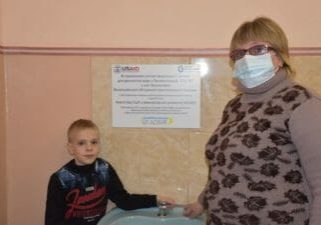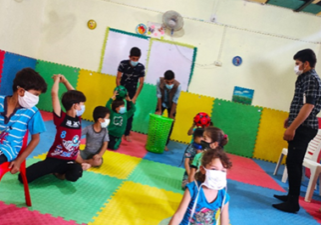News > Blog
Communities and COVID-19 Recovery Policy Implementation: Learning From The Example of Rainwater Harvesting Systems In Honduras
Published 04/24/2020 by globalcommunities
By José Eguigure
The article was originally published at https://revista.drclas.harvard.edu/book/jos%C3%A9-eguigure
As a current student at the Harvard Kennedy School (HKS), I attended a virtual session called “The Fog of War: Real Time Lessons for Developing Countries in the Fight Against Covid-19” taught by Professor Ricardo Hausmann. Hausmann strongly recommended that we focus our attention on what happens afterward, since “this crisis is not going to be a short war.” As a result, I repeatedly asked myself how emerging nations such as my home country of Honduras will cope with economic and social recovery after COVID-19. The country has long faced the challenges of climate change, lack of transparency and extreme poverty. Now Covid-19 was complicating the situation even more. According to the World Bank, in 2018, 48.3 percent of people were living below the poverty line in Honduras and, had one of the highest inequalities rates in the world, with a GINI index of 50.5 in 2017.
Some of the key strategies rest with communities and how governments implement good policy for community empowerment. Based on my experience working as a development practitioner on human rights, public health, vulnerable populations and climate change for a decade and a half in Central America, I have realized how important empowered communities are in times of crisis. Communities can better address unexpected issues – a coup d’état, hurricanes and pandemics – when they have capacity to adapt and respond with empathy and speed. Higher participation among women also contributes to improved success in handling crises as I observed in my work. Thus, designing policies and programs to enhance resilience among communities should be a high priority for government officials. They can build this capacity and respond to the Covid-19 aftermath by using evidence-based approaches combined with good policy implementation; this can achieve results in the short run and also contribute to positive impact in the long term.
A good example of this is the use of a holistic smart-agriculture approach such as rainwater harvesting systems, addressing several issues simultaneously (e.g. food security, higher income, water availability, and capacity building). In 2017 the U.S. nonprofit Global Communities directed research to evaluate the impact of using community rainwater harvesting systems among small farmers affected by climate change in southern Honduras. Its findings demonstrated the effectiveness of these systems in yielding at least three production cycles per year even in the most extreme weather. It was the first time that farmers could produce valuable crops in the dry season such as watermelon and corn. Profitability then increased from – 34% to 317% (both crops showed high marginal return rates over 300%) during the dry season. Using reservoirs with a storage capacity between 8,000 and 20,000 cubic meters, farmers could plant up to 10 hectares of water-intensive crops such as corn (800 to 1,000 cubic meters per hectare) and could irrigate three hectares simultaneously without using water pumps. This evidence supports the promotion of policies using public and private investments to scale up water-harvesting technology across Honduras.
As HKS Professor Matt Andrews states, a measure of success of good public policy implementation depends on its levels of legitimacy and its functionality: legitimacy in terms of the type of support needed from key stakeholders and functionality as the impact this policy creates in the long run. Innovative policies such as scaling up rainwater harvesting systems nationwide will likely face high levels of unknowns, especially after Covid-19. The approach to implement this policy, then, will require adaptive components in which many stakeholders – including communities – will need to be involved in the implementation, evaluation, experimentation, and iteration of new strategies. I know from my own experience that significant changes can happen when communities are part of the processes that impact their own development. This should become the norm when determining policies for recovery.
José Eguigure is a Mid-Career Master in Public Administration student and Edward S. Mason Fellow at the John F. Kennedy School of Government, Harvard University. LinkedIn: www.linkedin.com/in/joseeguigure
All photos are in the department of Valle in southern Honduras.
Courtesy of José Eguigure






